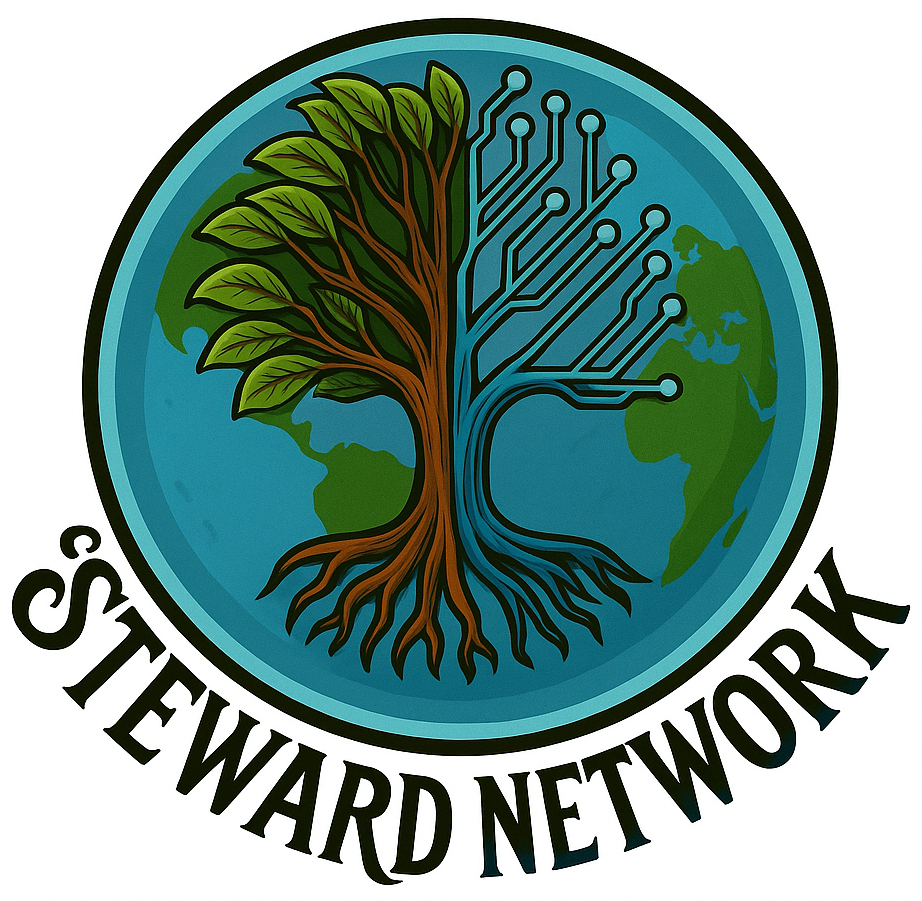♻️ Sustainable Resilience
By the mid-21st century, humanity has not eliminated risk—but has learned to navigate it. After a period of escalating shocks, polarization, and institutional failure eventually triggered a global tipping point.. The forces of collapse were met not with a single heroic act, but by a distributed, principled effort to rebuild the foundations of resilience from the ground up.
Trust was slowly restored through transparency and shared purpose. Systems for knowledge, foresight, and cooperation were reformed, made adaptive, and accountable to future generations. Decision-making shifted toward long-term wellbeing. The logic of extraction gave way to stewardship, as societies began managing key systems as living, shared infrastructures. Across many regions, planetary boundaries were stabilized. Though challenges persist, the downward spiral was broken. Humanity chose resilience—and began a new evolution.
In this world, daily life reflects both continuity and transformation. Children grow up with strategic literacy as a core skill, learning foresight alongside empathy. Communities manage resilience budgets with the same care once given to military spending. Intergenerational gatherings are common, and rituals of remembrance and recommitment have replaced the silence once surrounding risk.
Networks of Steward Scouts—now fully integrated into schools, cities, and civil society—help mediate disputes, run scenario workshops, and support public engagement during policy decisions. Governance is messy but transparent. AI systems are widely used, but never unchecked. Most importantly, a shared ethic has emerged: that everyone has a positive role to play in the future of humanity.
Along the way, this transformation has been characterized by the successful implementation of “parallel” systems:
- Mental Health 🧠: Mental and emotional wellbeing services are truly inclusive, accessible, reliable, and equitably distributed worldwide. Stigma for mental health issues has significantly reduced, and proactive support for psychological resilience is seamlessly integrated into education, workplaces, and community life, enhancing cognitive function and collective coping capacity under stress.
- Strategic Literacy 🔎: Societies have achieved a high degree of strategic literacy. Education systems, public discourse, and decision-making processes routinely incorporate systems thinking, foresight methods, and nuanced risk assessment. Citizens and leaders alike possess a greater capacity to understand complex interdependencies and evaluate long-term consequences, leading to more proactive and adaptive policies.
- Trust and Representation 🤝: Social trust, both interpersonal and institutional, operates at significantly higher levels globally. Governance structures earn legitimacy through representation that is inclusive, sustainable, accessible, reliable, and equitable, fostering greater cooperation within and between nations. Transparent processes and accountability mechanisms are the norm.
- Government 🏛️: Governance, from local e-governance platforms to international bodies, is inclusive, sustainable, accessible, reliable, and equitable. Institutions are characterized by adaptability, transparency, effectiveness, and a focus on long-term public good, supported by high levels of citizen engagement and trust. They possess the capacity to implement and enforce policies effectively, even in complex domains.
- Economy =: Economic systems are fundamentally reoriented towards inclusive, sustainable, reliable, and equitable outcomes. Measures of progress prioritize wellbeing and ecological health alongside prosperity. Inequality has been substantially reduced through fairer distribution of resources and opportunities. Market mechanisms effectively internalize environmental and social costs, incentivizing sustainable practices.
- Information Quality 📀: The global information ecosystem is far healthier. High-quality, reliable information is widely accessible and trusted. Strong norms, platform accountability, and high levels of media literacy effectively counter the spread and impact of mis/disinformation, enabling shared understanding and evidence-based decision-making.
- Infrastructure 🔌: Critical physical and digital infrastructure is designed and maintained to be inherently inclusive, sustainable, accessible, reliable, and equitable. Systems (energy, communication, transport, health, etc.) are robust against shocks, secure against cyber and physical threats, and provide essential services universally, with built-in redundancy and adaptability.
- AI Alignment 🤖: The development and deployment of advanced AI systems are guided by robust, globally coordinated efforts ensuring safety, ethical alignment, and equitable benefit distribution. AI serves primarily as a tool to augment human capacity for understanding complexity and solving problems, with strong oversight mechanisms preventing loss of control or widespread misuse.
♻️ Sustainable Resilience Outcome:
While existential risks have not vanished entirely, humanity’s strengthened foundational capacities provide a vastly improved ability to anticipate, mitigate, adapt to, and recover from shocks. The dangerous negative feedback loops described earlier are dampened. They are replaced by virtuous cycles where trust enables cooperation, strategic literacy informs action, and global wellbeing supports sustained effort. This resilient foundation creates the possibility for navigating the remaining challenges of the 21st century and pursuing long-term human flourishing (⭐) for the very long term.
